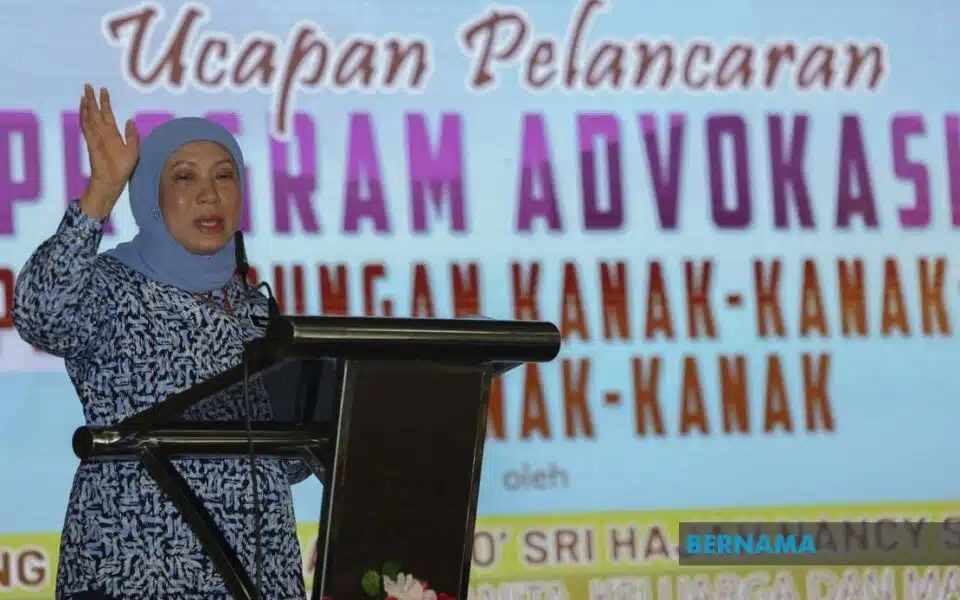SIBU, Dec 7 — The Women, Family and Community Development Ministry (KPWKM) is committed to multiplying its efforts to empower reproductive health education and social symptoms among teenagers.
Its Minister Datuk Seri Nancy Shukri said this includes increasing the involvement of other ministries and agencies, as well as the community, to further reduce the statistics of cases which touch on reproductive and social health issues involving the groups.
“The ministry has broadened its focus and efforts by involving all age groups, from children to the elderly. The community plays a significant role in applying knowledge and correct perceptions about reproductive and sexual health, as well as its connection with social symptoms.”
Although other ministries or agencies have their own programmes, Nancy said that she will not give up, and will find a way to attract the youth back to a better path, to improve their future.
She said this after closing the Reproductive Education Advocacy Forum Especially for Groups with Special Needs from a Religious Perspective, in Sarawak here today.
Earlier in her speech, Nancy said that the prevalence of teenagers in Malaysia who have sex increased, from 7.3 per cent in 2017 to 7.6 per cent in 2022, and this trend is worrying, with the first age of having sex being as early as 13 years old.
She said that 88 per cent of those who engage in sexual activity do not use condoms and do not use any family planning methods, in addition to a lack of knowledge of reproductive health, with only 1.3 per cent of those aged between 13 and 18, having knowledge about HIV.
“Three states are recording the highest percentage of teenagers aged 13 to 18, who have had sex, namely the state of Kelantan (9.5 per cent), Sarawak (9.1 per cent) and Penang (8.9 per cent),” she said.
“One of the factors in the increase in cases related to reproductive health is excessive exposure to information from social media and the internet, which has the potential to influence their behaviour,” she said.
She added that the matter led to, among others, sexually transmitted diseases, underage marriages, unsafe abortions and dumping babies.
Among her ministry’s efforts is the establishment of Kafe@TEEN which is a one-stop centre to help teenagers involved in reproductive and social health cases, including the disabled who are at high risk of being taken advantage of.
She said that a total of 18 KafeTeen youth centres have been established nationwide since 2006, and two of them are located in Long Bedian and Sri Aman, Sarawak.
“We have several associations (which offer related services) but we want to have more. Through activities organised by this one-stop centre we can train them (teenagers) and equip them with skills,” she said.
There are 600,000 Kafe@TEEN strategic partners nationwide, and the ministry is currently studying to increase the number of Kafe@TEEN in Sarawak.
She said that those who want to become strategic partners of the ministry can register with the National Population and Family Development Board (LPPKN).
— Bernama





